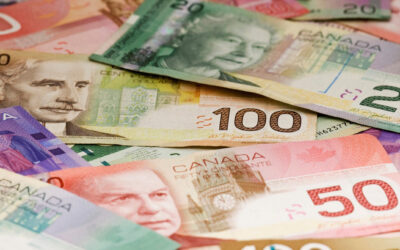As the holiday season approaches, doctors often give gifts to colleagues, administrative staff, nurses, and...
Financial Considerations of Buying a Home
You May Also Like…
There is a lot to think about when you buy your first home. What colour should you paint the living room? What should the extra bedroom be used for? A home office? A gym? Or maybe a nursery?
Outside of aspirational objectives, there are many practical matters that need to be considered. This article provides a basic overview of some of the financial considerations of purchasing a house.
Down Payment:
How much to put down?
To qualify for a mortgage, you will need to make a down payment equal to at least 5% of the purchase price of the property.
If you put less than 20% down, you are required to pay for mortgage insurance through CMHC (Canada Mortgage and Housing Corporation).
If you can put down 20% or more you can avoid the CMHC insurance.
Saving for a Down Payment
You should also consider saving for your down payment by contributing to your RRSP (to use the Home Buyers Plan) or the First Home Savings Account (available starting 2023).
- RRSP: If you have funds in your RRSP, you can borrow those funds using the ‘Home Buyers Plan’ (HBP). You and your spouse can each withdraw up to $35,000 from your RRSP accounts on a tax-free basis. This amount is then repaid to the RRSP over 15 years.
- FHSA: The First Home Savings Account is a tax-deductible savings account that allows first time Canadian home buyers to save up to $40,000 for a down payment. Contributions to this account offer a tax deduction on your personal tax return. Unlike the HBP, withdrawn funds never need to be repaid. Effectively, this allows you to put $40,000 of earnings towards a down payment, which are never taxable to you.
To learn more about the Home Buyers Plan and FHSA, click here: https://bokhaut.ca/fhsaupdates/
Deposit and Closing Costs:
So, you have all the funds required to make a down payment on the house of your dreams, but do you have cash available to make a deposit at the time of the offer? What about the closing costs?
Deposit
When you make an offer on a house, you are encouraged to pay a deposit. The deposit shows the seller that you are serious about the purchase and that you intend to complete the deal. There is no set amount required for a deposit, but if there are multiple offers, a large deposit may tip the scales in your favour.
To make a deposit, you would need cash available in your chequing account. If all your savings for the house are in the RRSP or FHSA, this may restrict your ability to do so, as there can be processing delays on withdrawing the funds.
Closing Costs – Offer Has Been Accepted
If your offer has been accepted, you must have, by the date of possession, financing in place and funds to pay the closing costs. The closing costs include (but are not limited to) Land Transfer taxes, legal fees and CMHC insurance fees (if your down payment is less than 20%).
Land transfer taxes in Manitoba are calculated on a graduated scale, with 0% on the first $30,000, increasing up to 2% on any amount over $200,000.
- For example, if the purchase price of the house is $500,000, land transfer taxes in Manitoba would be ~$7,650.
- You can calculate land transfer tax in Manitoba using the following link: https://www.gov.mb.ca/finance/other/landtransfertax.html
Legal fees vary based on the law firm but are generally several thousand dollars.
If you are purchasing a condo, there may be additional fees such as a contribution to the reserve fund.
Fees can add up quickly, so it’s important to get an idea of what the ancillary costs are before you make an offer.
Tax credits and rebates:
- If you are a first-time home buyer, you are eligible to claim the ‘First Time Home Buyers’ Tax Credit. This is claimed on your personal tax return and provides a benefit of $1,500 in tax savings.
- If you build a new house or buy a newly built house, there will be GST charged on the purchase. You can claim a GST rebate to recover some of the GST paid. In Manitoba you can claim a rebate for 36% of the GST paid up to a maximum of $6,300. Often if you purchase the house from a builder, the builder will help you apply for this rebate. If the property Is located in Ontario or Nova Scotia, there may be additional rebates available through the provincial governments.
- There should be no GST charged on the purchase of a pre-owned home, unless the home has been substantially renovated. A substantial renovation is considered to have taken place if all or considerably all the interior of the building has ben replaced.
If you are a physician and have questions on the above, please contact us.
* This article was prepared on October 22, 2022. Content is for informational purposes only and is not intended to be used as professional advice. Each taxpayer’s circumstances are unique. Bokhaut CPA makes no representation as to the accuracy and completeness of the information in this article and will not be liable for any errors or omissions in this information.

You May Also Like…
Tax Implications of Gift Gifting From Your Medical Practice
As the holiday season approaches, doctors often give gifts to colleagues, administrative staff, nurses, and professional advisors. While these gestures are generous, they may lead to unexpected tax implications. Gifts to Non-Employees: Doctors may give gifts to...
11 Reasons Why Physicians Contribute to RESPs
As veterans of higher education, physicians often anticipate that their children will carry the torch of post-secondary learning. Physicians can optimize savings and tax on this future expenditure by contributing to a Registered Education Savings Plan (RESP), which...
Physician New to Canada? What you need to know about Canadian Personal Taxes.
Are you a physician that moved to Canada in the last year? If so, these are some things that you should know about filing your first Canadian Personal Tax Return: When are Canadian taxes due? Canadian personal taxes are calculated based on income earned between...
Basic Overview of Canadian Personal Taxes
Personal tax season is upon us and as you gather your personal tax documents you may be wondering “How are my personal taxes calculated?”. How are Canadian Personal Taxes Calculated? Canadian taxes are based on a graduated rate system. This system can be thought of in...
I Just Called to Scam You
How to determine if it’s CRA on the line. Over the past few years, scam phone calls from individuals claiming to be from the Canada Revenue Agency (CRA) have increased. As we approach the time of year to file personal tax returns, these calls become more frequent as...
RRSP or TFSA
RRSPs and TFSAs are both “registered” investment accounts, which means that they receive special tax treatment that is not applicable to other “non-registered” investment accounts. The special tax treatment of these accounts increases the total benefit of investing by...
Month of Giving (Part 3): Donation of Securities
Instead of liquidating securities to fund donations, it may be more tax efficient to donate securities directly to charitable organizations. If you sell a security to obtain cash to donate, you generally need to pay tax on the profit earned, also known as a capital...
Month of Giving (Part 2): Tax Efficient Donating
Many physicians in Canada have incorporated their practices, as there are significant tax benefits to doing so. This then provides incorporated doctors with two avenues to donation: Corporate Donations Personal Donations We are often asked, “should I make donations...
Month of Giving (Part 1): Donation Tax Credit Refresher
December is the month of giving. While deciding which charitable organizations you wish to support this year, the following donation tax credit information is good to keep in mind: What qualifies as a donation for tax purposes? To qualify for the donation tax...
The Season of Giving – is it taxable?
As the holiday season approaches, it is not unusual for doctors to provide gifts to their employees, hospital administrative staff, colleagues, and nurses. While these gifts are generous gestures, they may result in unexpected tax implications. Gifts to Employees When...









